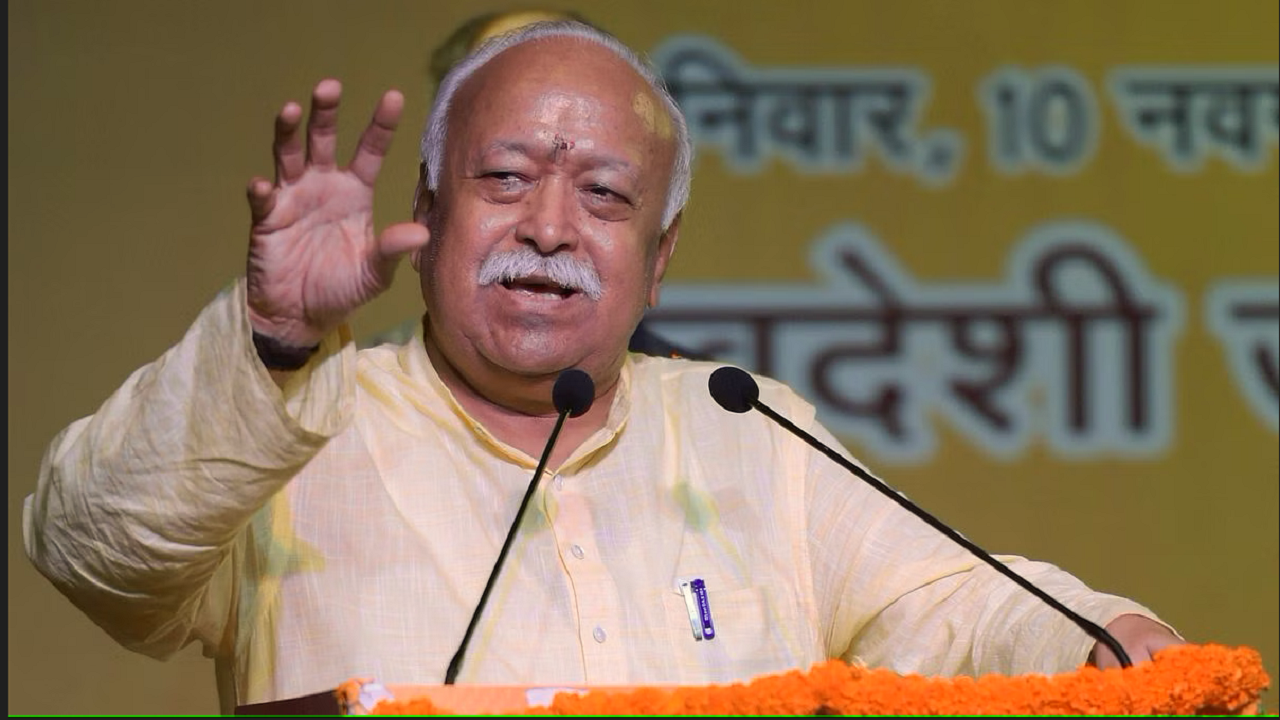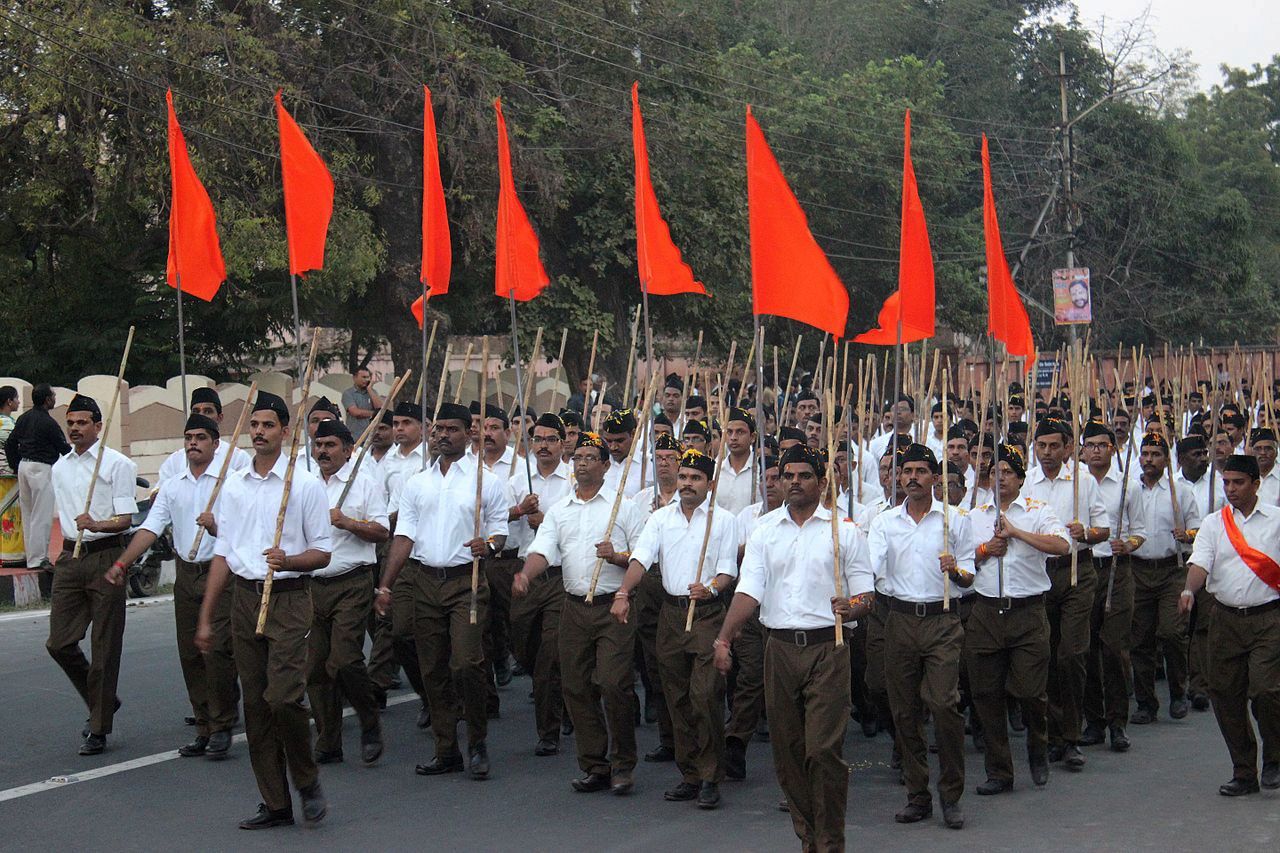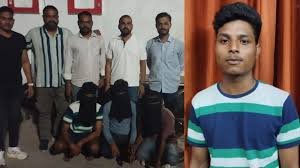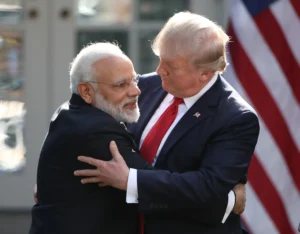
“RSS Chief’s Call to Action: Unite Hindus Against Caste and Language Barriers”

Mohan Bhagwat, the chief of the Rashtriya Swayamsevak Sangh (RSS), recently delivered a significant address in Baran, Rajasthan, emphasizing the urgent need for unity among Hindus. His remarks come at a time when societal divisions based on caste and language are increasingly scrutinized within the political landscape of India.
Call for Unity
During his speech, Bhagwat asserted that “the Hindu society must unite for its security by eliminating language, caste, and regional differences.” He stressed that these divisions pose a threat to the collective identity and safety of Hindus in India. Bhagwat highlighted that despite the term “Hindu” being relatively modern, the essence of Hindu identity has existed since ancient times, advocating for harmony through continuous dialogue among community members
Political Context
This call for unity is particularly relevant given the current political climate, where accusations of caste-based divisions are prevalent. The ruling Bharatiya Janata Party (BJP) has been vocal against opposition parties like Congress, alleging attempts to fracture Hindu unity along caste lines. This sentiment was echoed by Uttar Pradesh Chief Minister Yogi Adityanath, who warned that division could lead to dire consequences for Hindus, stating “batenge toh katenge” (if we get divided, we will be cut/killed)
Vision for Society
Bhagwat described the RSS as an “unparalleled organization,” emphasizing its foundational values that permeate from leadership to grassroots volunteers. He encouraged RSS members to engage actively with their communities, focusing on social harmony, justice, health, education, and self-reliance. The chief urged volunteers to promote environmental awareness and civic consciousness as essential components of societal well-being.
How has the RSS historically addressed caste differences within Hindu society

The Rashtriya Swayamsevak Sangh (RSS) has historically navigated the complex landscape of caste differences within Hindu society through a combination of inclusion, reform, and preservation of existing hierarchies. Here’s a detailed examination of how the RSS has approached caste issues over the years.
Historical Context
Founded in 1925 by K.B. Hedgewar, the RSS emerged as a response to various socio-political movements, including the rise of Dalit politics led by figures like B.R. Ambedkar. The organization sought to unify Hindus under a nationalist banner, but its approach to caste has often been controversial. Rather than denouncing the caste system outright, the RSS has attempted to reform it while maintaining its fundamental structure. For instance, M.S. Golwalkar, a prominent RSS ideologue, argued that the caste system was integral to Hindu society’s survival and should not be dismantled
Inclusion Efforts
In the 1970s, the RSS began institutionalizing “sewa” (service) initiatives aimed at integrating Dalits and Adivasis into the Hindu fold. This was partly motivated by a need for mass support while ensuring that existing caste hierarchies remained intact. Senior RSS members have acknowledged that these efforts were crucial for political recognition in regions like Bihar
. However, these initiatives have often been critiqued for being more about co-opting lower castes than genuinely addressing their grievances.
Caste and Social Hierarchy
The RSS has consistently attributed casteism and untouchability to historical factors such as Islamic invasions rather than acknowledging internal social hierarchies within Hindu society. This narrative has been used to deflect criticism of caste discrimination while reinforcing a Brahmanical perspective
. For example, in recent statements, RSS leaders have emphasized that caste discrimination is a historical issue rather than a current failing of Hindu society.
Shifting Stances on Reservations
The RSS’s position on affirmative action for lower castes has evolved over time. Initially supportive of reservations for Dalits and other marginalized groups, leaders like Mohan Bhagwat have fluctuated between advocating for these measures and suggesting they should be re-evaluated or limited in duration
. In 2023, the RSS expressed support for a caste census but insisted it should be used for societal upliftment rather than political gain.
Internal Critiques
Despite its public stance on inclusivity, the RSS has faced allegations of caste-based discrimination within its ranks. Bhanwar Meghwanshi, a former member who is himself a Dalit, revealed in his book that while he initially felt welcomed at RSS gatherings, he later encountered entrenched caste dynamics that marginalized him and others from lower castes. His experiences highlight a disconnect between the organization’s inclusive rhetoric and its internal practices.
Discover more from
Subscribe to get the latest posts sent to your email.







